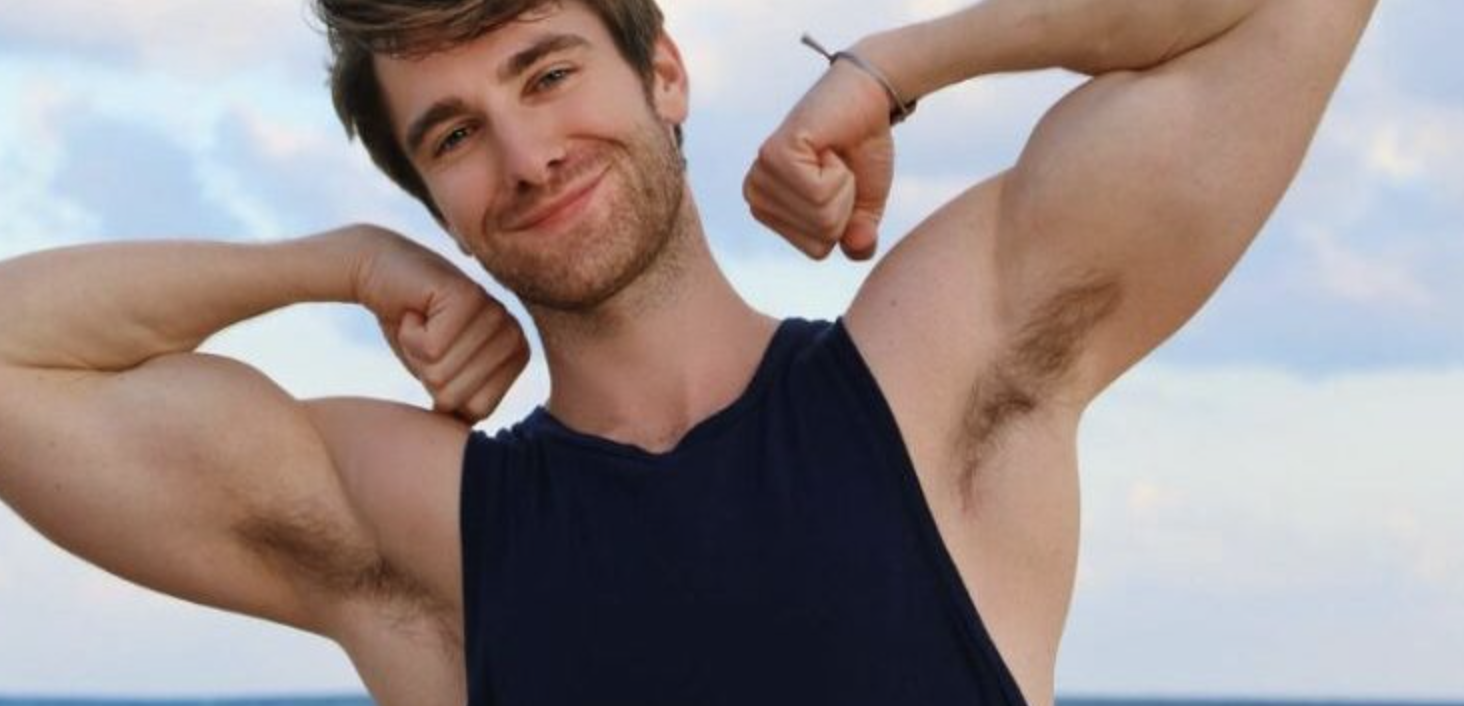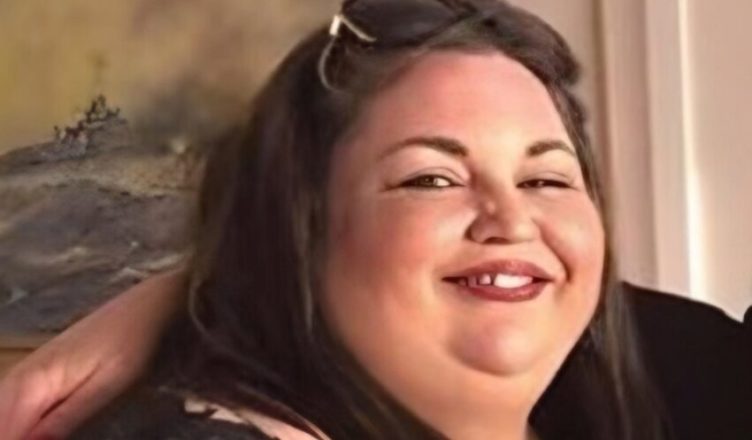Despite not being destined to be just another teen mother, Jenni Lake gave birth to a boy a month before becoming 18 years old. That much she was aware.
She drew her nurse down to her at bed level and murmured into her ear as she was being checked into the hospital.
Later, when the girl’s family’s worst fears came true a day after Jenni’s baby was born, the nurse would console the girl’s family by repeating the girl’s words.
She said to the nurse: “I’m done; I fulfilled my obligation. My infant will arrive without incident “Jenni’s mother, Diana Phillips, remarked.
The baby’s rosy cheeks and healthy weight stand out in contrast to the sickly girl who gave birth to him in the images.
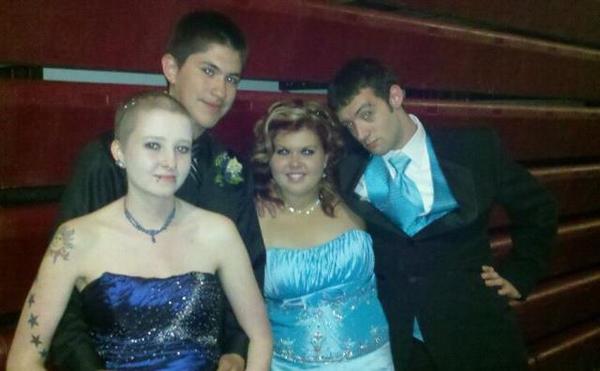
She gives the baby’s head a kiss while closely holding him. At the peak of her pregnancy, Jenni, who stands five feet and four inches tall, weighed just 108 pounds.
Mrs. Phillips discovered that her daughter’s decision to delay treatment for tumors on her brain and spine so she could carry the baby would have grave consequences the day after the baby was born on November 9. Too much ground had been claimed by cancer. Nothing could be done, according to Mrs. Phillips.
Only 12 days had passed since Jenni’s birth, of which she spent half in the hospital and the other half at home when she passed away.
However, her family and friends are adamant that her legacy will be one of sacrifice rather than tragedy.

In the living room of their ranch-style home in Pocatello, where her family gathered this month, a Christmas tree was decorated with ornaments specially chosen for Jenni, including one in the color lime green, which is her favorite.
Down the hall in a bedroom, she had passed away.
Jenni’s mother held the child close, kissed his head, and said: “I want him to know everything about her, and everything she did.” She recalled Jenni’s contagious laugh and rebellious nature.
Jenni began experiencing migraines while she was a sophomore at Pocatello High School, age 16, last year.
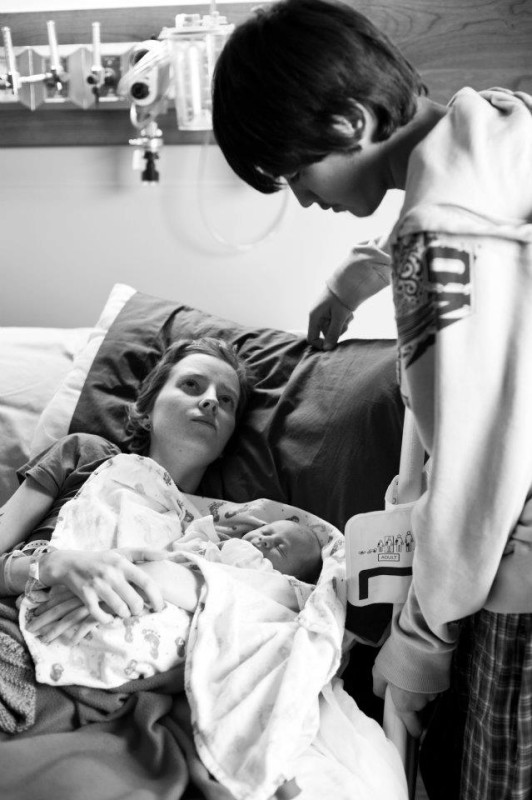
After being taken to the family physician, an MRI scan revealed a tiny lump on the right side of her brain that was about two cm broad.
A second scan at the hospital in Salt Lake City, about 150 miles south of Pocatello, revealed that the lump was larger than first believed.
Following a biopsy on October 15, 2010, Jenni was given a diagnosis with stage three astrocytoma five days later.
Jenni was told that her case was unusual since she had three tumors on her brain and three on her spine, and cancer had moved from her brain to another region of her body without any symptoms.
Her estranged parents recall being taken to a hospital room where they were seated at a large table as physicians evaluated her prognosis.
Jenni just asked them outright if she was going to die, according to her father Mike Lake, a truck driver who lives in Rexburg, which is north of Pocatello and is 43 years old.
The response was inadequate. According to Mr. Lake, the kid was given a 30% chance of living for another two years with treatment.
Mr. Lake was devastated, but he was also struck by how resilient she appeared to be.
He claimed, “She didn’t cry out in tears or anything.”
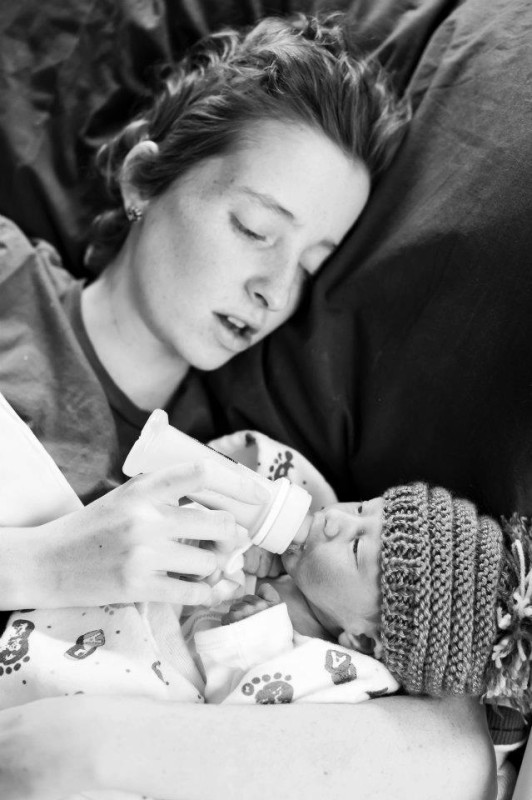
But according to her mother, Jenni did experience a weak moment that day.
She became disturbed when they informed her that she might not be able to have children, according to Mrs. Phillips, 39.
In addition to beginning intensive chemotherapy and radiation treatments, Jenni started making videos on the YouTube channel Jenni’s Journey with the intention of sharing her journey and providing updates every other day.
However, due to the fatigue and weakness brought on by her treatments, she was only able to upload three movies.
Jenni appears upset in her second video, which was uploaded on November 20, 2010, while a family friend records her eating lunch with her mother.
In the video, Jenni can be heard saying, “Last night, I was just lying in bed and I was thinking about everything that was going on and it just like, it just hit me, like everything, and I don’t know, it made me cry.”
Her mother is pictured with her face buried in her hands.
She asks before breaking down in tears, “Do you realize how hard it is to be a mom and know that she’s sick and there’s nothing you can do.”
Jenni insists, “It’s difficult. I feel as though I don’t know how much longer this will last and I just want it to end. I believe that this is preventing me from doing so much.
The tumors had begun to recede by March of this year, according to the family.
Jenni smiles briefly for the camera in a photo shot at her prom in early May while donning a dark blue strapless dress.
Her hair is less than an inch long and has a silver headband in it. Her blonde, shoulder-length hair was lost during chemotherapy.
Nathan Wittman, her boyfriend, is holding her from behind while dressed in a black dress shirt and jeans.
A few weeks before to learning of her diagnosis, Jenni began dating Nathan.
The cancer that put their relationship through an extremely adult test, the chemotherapy that left her barely able to move from her living room to her bedroom, and the rumors spread at school did not break them up.
According to Jenni’s older sister Ashlee Lake, 20, “the stories started going around, like Nathan was only with her because she had cancer,” and the young couple chose to ignore it.
They harbored dreams of one day operating a gallery or a restaurant.
At the time, Jenni was an apprentice at a nearby tattoo parlor. Kass Chacon, the owner, remarked that she was like his or her little sister.
But Jenni started making fewer trips to the store in May.
She was experiencing severe stomach pain and frequent vomiting. One early morning, she and her partner went to the emergency department; when she came home, her family members awoke to the sound of crying.
In her room, Jenni could be heard sobbing, according to her 19-year-old sister Kaisee.
An ultrasound revealed the fetus was ten weeks old, and she had found out she was pregnant.
The adventure Jenni was on was no longer her own.
According to her mother, she was informed that from the beginning of treatment that it was possible that the radiation and chemo would effectively render her childless.
The 19-year-old Nathan stated, “We were informed that she couldn’t become pregnant, so we didn’t worry about it.”
The third of her parents’ eight children, Jenni, had always dreamed of having a family. When she saw her oncologist, Dr. David Ririe, in Pocatello two days after learning she was pregnant, she had already made up her mind to keep the child.
He informed us that she cannot continue the therapy if she becomes pregnant, Mrs. Phillips added. She would have to choose between terminating the pregnancy and continuing the therapies or stopping the therapy while still knowing that it might grow again.
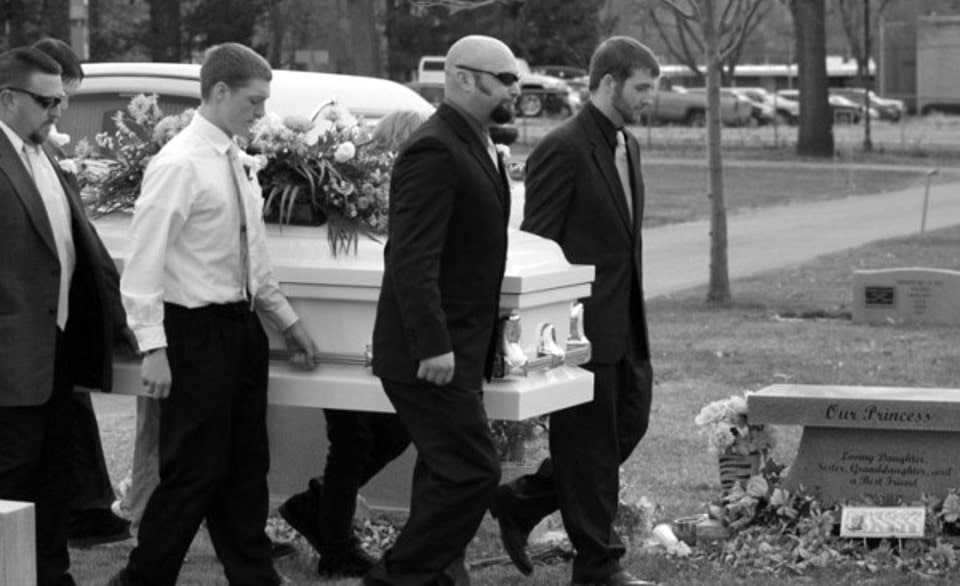
In general, Dr. Ririe said, in situations where a cancer patient is pregnant, oncologists will examine both the risks and benefits of continuing with treatment, such as chemotherapy. However, she refused to discuss Jenni’s care due to privacy restrictions.
The benefits of chemotherapy during pregnancy sometimes outweigh the risks to the woman and the unborn child, Dr. Ririe added, citing breast cancer as the typical example. There are additional situations in which the risks outweigh the advantages.
No one had any idea which route Jenni would take. Both her parents and Jenni might not have viewed it as a straightforward life-or-death choice.
They thought she had a good chance of having the child and then going back to therapy once he was delivered because the tumors had already begun to diminish earlier.
Her mother remarked, “I guess we were just expecting that she could go back on the chemotherapy and get better after she delivered the kid.”
After their fathers, Jenni and Nathan gave the kid the name Chad Michael. The child, who is mostly looked after by Nathan’s mother, Alexia Wittman, 51, has Nathan’s legal custody.
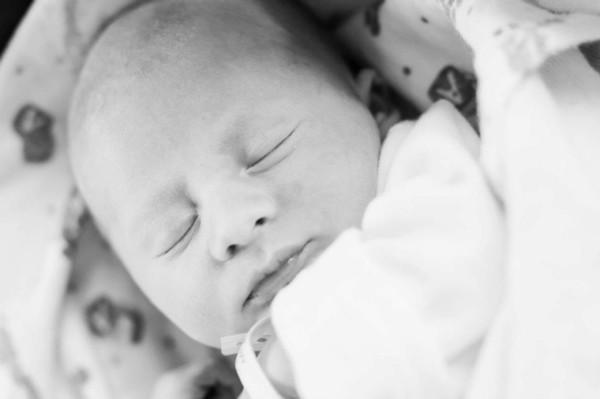
She answered, “Nathan will raise him.” When Jenni’s family requests visits, she brings the infant to their home.
According to her family, Jenni didn’t express regret for her choice during her final weeks of pregnancy as she grew weaker or when she began to lose her vision as the disease progressed.
As her son was placed by her side for the last time, Jenni’s father recalled her last words. I can kind of see him, she murmured as she reached out for the infant.
